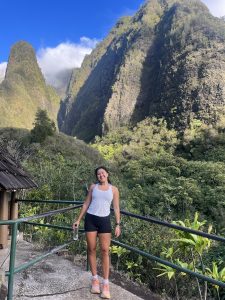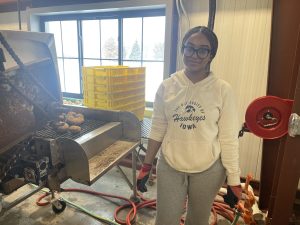36 Personal Reflection
lchino and elkhalfa
Lucia’s Reflection
While researching for this project, I gained valuable insight into public health’s big role in decision-making. As a public health student, I’ve had the opportunity to learn about different exposures, frameworks, implementation stages, etc., but to choose a topic and then being able to research it has been rather interesting.(LC)
Before this deep dive, I didn’t know much about environmental justice. I could give you the gist of it, but not the implications it had from a global or country perspective. Researching and writing for this project has given me vast knowledge regarding environmental justice. I’ve gotten to see how not only does it affect communities, but also the why and how it keeps happening. Understanding how the system allows marginalized communities to fall through the gaps continuously has made me want to see change more than ever.(LC)
I’m excited to apply what I have learned in my public health career! I’m also curious to see what impact the new presidential administration will have on environmental justice and how public policy may shift in response. (LC)

Wiam’s Reflection
Participating in this project has deepened my understanding of environmental justice and its importance in public health. While I previously had a general understanding of environmental concerns, delving into specific topics like Cancer Alley, environmental injustices in prisons, and global environmental disparities further demonstrated the systemic flaws contributing to disproportionate environmental impacts on vulnerable communities. (WE)
Researching Cancer Alley reveals how industrial pollution has resulted in some of the greatest cancer rates in the United States, predominantly impacting Black neighborhoods in Louisiana. This prevalent example of environmental racism reflects the urgency for equitable policy reforms and interventions. Similarly, assessing environmental status within the incarceration system, like common exposure to contaminated water or extreme temperatures, exemplifies a serious health hazard. (WE)
Expanding my knowledge on state-wide environmental problems and connecting it to my partner’s research on the global scope exposed the corrupt practices being pursued in state, national, and international environmental law. This research has proven that low-income communities are the most frequently affected groups when assessing climate change and the environment. This discrimination highlights the importance of international collaborations to effectively aid health disparities across the world. (WE)
As a public health certificate student at the University of Iowa, I am motivated to apply this research through participation in community research, policy advocacy, and educational opportunities. I acknowledge the importance of incorporating environmental justice into traditional public health initiatives to promote equitable access to better quality of life for all people. This project has not only amplified my academic understanding but also enhanced my commitment to advocating for systemic changes in efforts to bring environmental injustices to an end. (WE)

